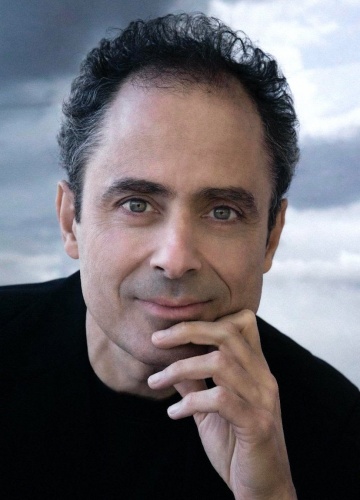Columbia College | Columbia University in the City of New York
Eugene Drucker ’73 Combined Academic and Musical Studies

LISA MARIE MAZZUCCO
What were you like when you arrived at Columbia?
I was 16 years old, idealistic, eager to learn, hoping that I was ready to confront the challenges of attending Columbia and The Juilliard School simultaneously. Though I was fairly sure that I’d become a professional violinist, I still welcomed the opportunity that the College offered to develop my intellect and broaden my view of the world.
What do you remember about your first year living situation?
I lived on campus only during Orientation, enjoying the social activities and the sessions that gave me some sense of what to expect academically. I lived at home with my father in Washington Heights for the first three years of the five that I spent at the College, then in apartments on the Upper West Side, closer to Juilliard for my fourth and fifth years.
What Core class or experience do you most remember, and why?
I recall both Contemporary Civilization, which I took in my first year, and Freshman Humanities — which I took in my second, because of the difficulties of combining my academic and musical schedules — as mind-expanding experiences. (There was no joint Columbia-Juilliard program in those days.) I later became quite friendly with my Humanities professor, Stephen Donadio GSAS’71, through my involvement at Middlebury College in the 1980s and beyond. Our Humanities syllabus ranged from ancient Greek tragedies and comedies, followed by readings of Plato and the Old and New Testaments, to medieval romances, culminating in the nineteenth century with Crime and Punishment. It was fascinating to read the same work, like Nietzsche’s Birth of Tragedy or Dostoyevsky’s great crime novel, in different courses during my years at the College; to be receptive to various points of view about seminal works in different contexts.
Did you have a favorite spot on campus, and what did you like about it?
I liked Hamilton Hall because I was an English and comparative literature major, and that’s where most of my courses were taught. I also liked to spend hours at Butler, looking for reference books that I needed and poring over them, taking notes. I felt so intellectually alive during my five years at Columbia!
What, if anything, about your College experience would you do over?
I might live on campus. During those years and later, I enjoyed communal living at summer music festivals, but those were for much shorter periods of time than what I would have shared with my fellow students. I believe I would have immersed myself more in the social life there, and my academic experience might have been even richer because I would have absorbed recommendations from other students about the most exciting courses to take, and would probably have had more conversations outside classes about the books we were reading.

